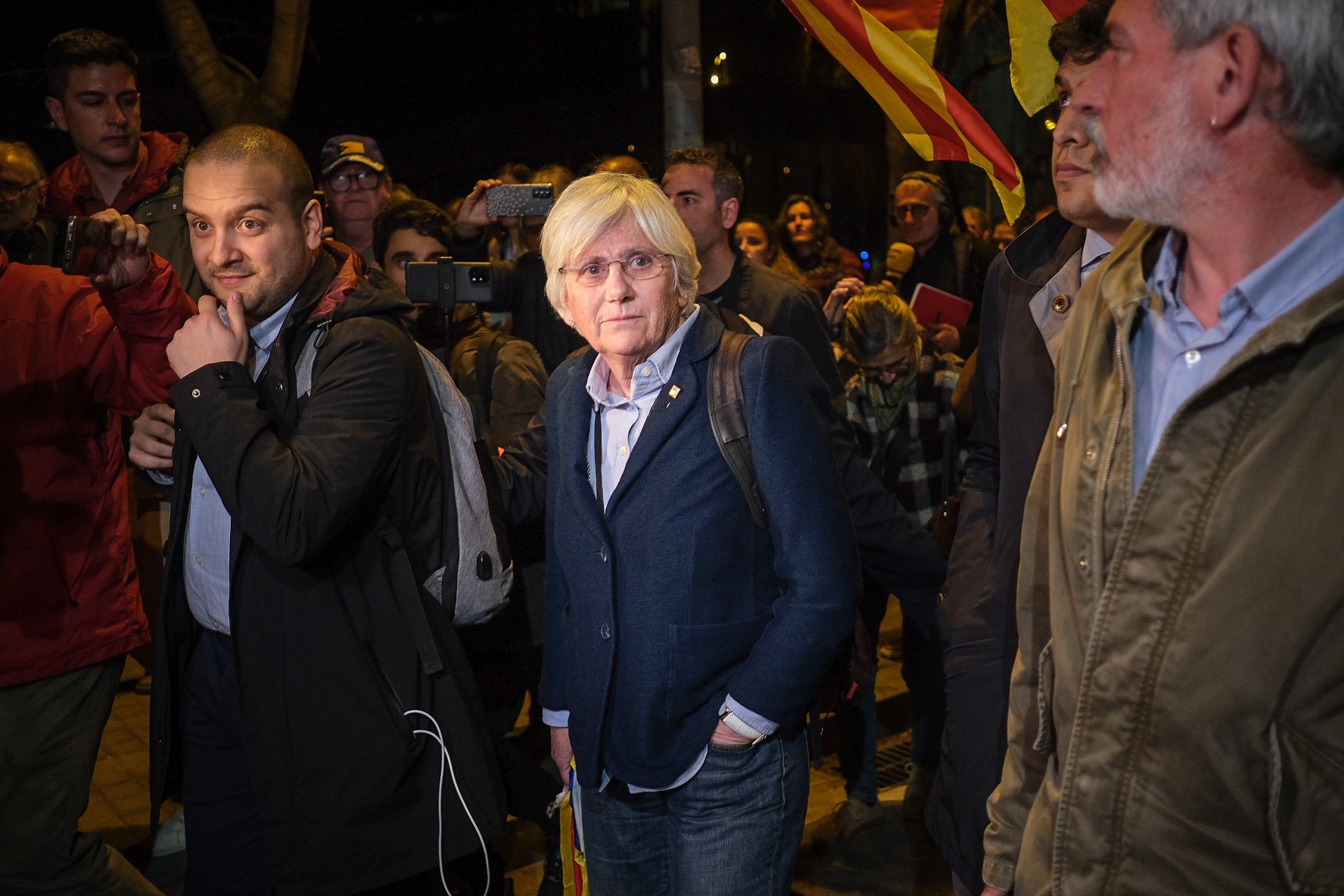Pro-independence Catalan politician Clara Ponsatí, who was called to appear at the Spanish Supreme Court before judge Pablo Llarena on Monday, and did not appear, has reiterated that she does not give a thought to the possibility of not returning to Barcelona: "I already came when there was a warrant for my arrest", she said in reference to her first visit to Barcelona in March after five years in exile. In a radio interview this Tuesday on El món a Rac1, the MEP explained that she will spend this week in Brussels and the weekend in Northern Catalonia, but she affirmed that she will return at a later point. Ponsatí's return could mean her immediate arrest, if judge Llarena reactivates the arrest warrant against her.
Ponsatí has stated that "it all seems a little surreal", in relation to the "the Supreme Court's persecution of me", although she acknowledged that the stakes have been reduced by the change in the Spanish Penal Code at the end of 2022. "They have this kind of obsession with going to Madrid to talk to Llarena and I don't want to do that," she stated. With regard to this, she defended her immunity as an MEP and that "these arrest warrants are illegal", although she regretted that "we have already seen the Supreme Court doing strange things and we will continue to see them".
"We won't make it easy for them"
The Supreme Court judge's response to Ponsatí's indisposition was to grant her 5 days to present her appeal for protection through her European parliamentary immunity. This refers in particular to the petition that the MEP registered in the European Parliament, which was referred to the Legal Affairs committee, after the Catalan Mossos d'Esquadra arrested her a month ago in Barcelona. With regard to this appeal, Ponsatí has asserted that if, finally, the committee states that the protection is maintained "it would be quite extreme if the order for me to testify was maintained", despite the fact that the MEP does not have much confidence in this committee "because we already know who heads it, but we will do our best so that the members of the committee position themselves correctly, but, well, the majority is controlled by the [anti-independence] Spanish MEPs", she said, also referring to the leadership which "is governed by this gentleman from Ciudadanos".
In response to ERC, which yesterday urged her to appear before the Supreme Court to "face Llarena", Clara Ponsatí commented that she does not plan to show her face "so that it can be slapped". She acknowledged that she is aware that this trial will end with her being convicted for disobedience "but we will not make it easy for them". So, she affirmed that it was foreseeable that there would end up being a conviction, but "the costs of the repression must be paid by them and not by us". When asked how long she thinks this tug-of-war can carry on for, she said that "any use of logic to say how it will end is absurd." Regarding the possibility of standing in the next European elections, Ponsatí said that she does not know: "I am not thinking about it at all. There are many months to go, I have neither thought about it nor decided".
Suspension of the judicial process against Ponsatí
Meanwhile, Clara Ponsatí's lawyer, Gonzalo Boye, has warned judge Pablo Llarena that once the European Parliament has officially announced that it has processed the request for parliamentary protection presented by the MEP following her arrest in Barcelona, judicial proceedings against her must be suspended until the European chamber issues its opinion. Her defence lawyer argued in a document submitted to the Supreme Court that on April 4th, a week after her arrest in Barcelona, the president of the European Parliament, Roberta Metsola, sent an official communication confirming that she had opened the procedure over the MEP's petition for protection and had sent her request to the Legal Affairs committee, as she announced before Parliament a week before.
Ponsatí's lawyer appealed to a judgment by the European Court of Justice from 2008 in which it appeals to the "loyal cooperation between the community institutions and the national authorities", especially when it comes to judicial authorities. Thus, Boye asserts that this jurisprudence obliges Llarena to "suspend the judicial procedure", which means "nullifying the summons" from this Monday, as well as the rest of the measures restricting the MEP's rights.

